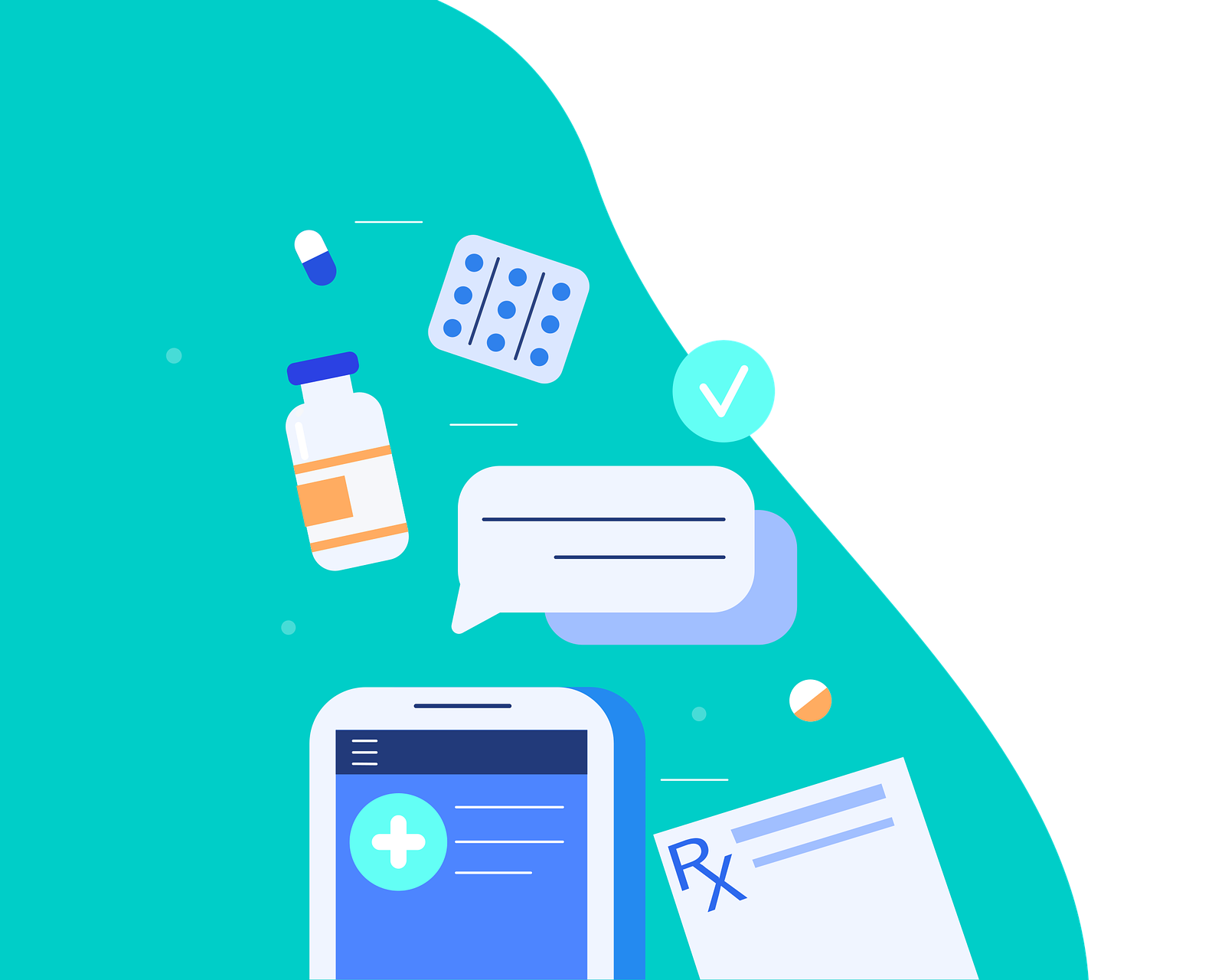How Can AI Be Used In Healthcare?

Artificial Intelligence (AI) is revolutionizing various industries, and healthcare is no exception. With advancements in AI technologies, the healthcare sector is witnessing unprecedented transformations that promise to enhance patient care, streamline operations, and improve outcomes. This article explores the implementation of AI in healthcare, its benefits, recent examples, and the future potential of AI in the healthcare ecosystem.
Understanding AI in Healthcare
AI in healthcare refers to the use of machine learning algorithms, natural language processing, robotics, and other AI technologies to perform tasks that traditionally require human intelligence. These tasks include diagnosing diseases, personalizing treatment plans, predicting patient outcomes, and automating administrative functions. AI's ability to analyze vast amounts of data quickly and accurately makes it an invaluable tool in modern medicine.
The implementation of AI in healthcare spans various aspects of medical practice. From clinical decision support systems to robotic surgeries, AI is becoming an integral part of the healthcare infrastructure. Generative AI applications in healthcare, such as creating synthetic medical data for research or developing new drug molecules, are also gaining traction.
According to Statista, the AI healthcare market, valued at $11 billion in 2021, is projected to soar to $187 billion by 2030. This growth reflects the increasing adoption of AI by pharmaceutical, biotechnology, and other healthcare companies.
Benefits of AI in Healthcare
Medical Imaging
AI algorithms can analyze medical images, such as X-rays, MRIs, and CT scans, with high accuracy, aiding radiologists in detecting abnormalities and diagnosing conditions early.
Personalized Treatment
By analyzing patient data, AI can recommend tailored treatment plans, enhancing therapy effectiveness and minimizing adverse effects.
Electronic Health Records (EHR)
AI can streamline the management of EHRs, improving the accuracy and efficiency of data entry, retrieval, and analysis.
Fraud Detection
AI can identify unusual patterns in billing and insurance claims, helping to detect and prevent fraudulent activities in healthcare.
Virtual Assistants and Chatbots
AI-powered virtual assistants and chatbots can provide patients with instant access to medical information, appointment scheduling, and preliminary diagnoses.
Remote Patient Care
AI can monitor patients remotely, providing real-time health data to healthcare providers and alerting them to potential issues.
Medical Research and Data Analysis
AI can analyze vast amounts of medical research data, identifying trends and insights that can lead to new treatments and improved patient outcomes.
Clinical Decision Making
AI can support clinicians by providing evidence-based recommendations, enhancing the quality of care.
Pandemic Preparedness
AI can model and predict the spread of infectious diseases, aiding in pandemic preparedness and response planning.
Early Diagnosis of Blood Diseases
AI can analyze blood samples and detect markers for diseases like leukemia at an early stage, improving the chances of successful treatment.
Drug Discovery
AI can accelerate drug discovery by analyzing biological data and predicting the efficacy of new compounds, reducing the time and cost associated with developing new medications.
Maintaining Medical Records
AI can automate the updating and maintenance of medical records, ensuring they are accurate and up-to-date.
Predicting Readmission Risk
AI can analyze patient data to predict the likelihood of readmission, allowing healthcare providers to take preventive measures.
Genomic Data Analysis
AI can process and analyze genomic data, identifying genetic markers for diseases and aiding in the development of personalized medicine.
Rehabilitation Monitoring
AI can monitor patients undergoing rehabilitation, providing feedback and adjusting treatment plans as needed.
Optimizing Clinical Trials
AI can optimize the design and management of clinical trials, improving efficiency and increasing the likelihood of successful outcomes.
Managing Chronic Diseases
AI can help manage chronic diseases by analyzing patient data and providing personalized treatment recommendations.
Preventive Maintenance of Medical Equipment
AI can predict when medical equipment is likely to fail and schedule preventive maintenance, reducing downtime and ensuring reliability.
Optimizing Hospital Resources
AI can optimize the allocation of hospital resources, such as staff, beds, and equipment, improving overall efficiency.
Clinical Understanding of Language
AI can analyze and interpret clinical notes and documentation, enhancing the understanding of patient conditions and treatment plans.
Tracking and Asset Management
AI can track and manage hospital assets, ensuring they are available when needed.
Organizing Medical Documentation
AI can organize and manage medical documentation, making it easier for healthcare providers to access and review patient information.
Automating Patient-Reported Outcomes
AI can automate the collection and analysis of patient-reported outcomes, providing valuable insights into patient experiences and treatment effectiveness.
Addressing HR Challenges and Burnout
AI can assist in managing HR tasks, such as scheduling and workload distribution, helping to reduce burnout among healthcare staff.
Automating Evaluation and Management
AI can automate the evaluation and management coding process, ensuring accuracy and reducing the administrative burden on healthcare providers.
Mental Health Monitoring and Support
AI can monitor mental health indicators and provide support through virtual counseling and therapy sessions, improving access to mental health care.
Challenges in AI Implementation
Despite its benefits, AI in healthcare faces several challenges. High implementation costs, potential biases in AI algorithms, and data privacy and security concerns are significant barriers, particularly for smaller healthcare providers and startups. These represent some of the disadvantages of AI in healthcare.
Cost of AI Implementation
Implementing AI in healthcare can be costly, with expenses ranging from $20,000 to $1,000,000. Healthcare firms often collaborate with reputable AI development service providers to streamline processes, reduce costs, and ultimately enhance patient care. Beyond software and hardware integration expenses, the cost of assembling the right team is significant. Understanding the cost of implementing AI in healthcare is crucial for effective budgeting and planning.
Examples of AI in Healthcare
- IBM Watson for Oncology: IBM’s Watson assists oncologists by analyzing patient data and delivering evidence-based treatment recommendations. Its ability to sift through vast medical literature helps identify the most effective cancer treatments.
- Generative AI in Drug Discovery: Companies like Insilico Medicine use generative AI applications in healthcare to design new drug molecules. In 2023, Insilico Medicine's AI-designed drug for idiopathic pulmonary fibrosis entered clinical trials, marking a significant milestone.
- AI-Powered Diagnostic Tools: Google Health's AI model for breast cancer detection from mammograms has achieved remarkable accuracy, sometimes surpassing human radiologists. This tool is currently being tested in clinical settings.
- AI in Telemedicine: The rise of telemedicine has been complemented by AI chatbots and virtual assistants, which help triage patients, provide medical advice, and schedule appointments, enhancing access to healthcare services.
- Robotic Surgery: The da Vinci Surgical System, an AI-assisted robotic surgery platform, continues to revolutionize precision in surgical procedures, reducing recovery times and improving patient outcomes.
The Future of AI in Healthcare
The future of AI in healthcare is promising, with ongoing research and development aimed at expanding its capabilities and applications. Potential developments include:
- Advanced Predictive Models: AI will continue to improve in predicting disease outbreaks, patient deterioration, and treatment responses, enabling more proactive and preventive healthcare measures.
- Integration with Wearable Technology: AI-powered wearable devices will monitor patients' vital signs in real-time, alerting healthcare providers to abnormalities and facilitating timely interventions.
- AI in Genomics: AI will play a crucial role in genomics, helping to identify genetic markers for diseases and tailoring treatments based on individual genetic profiles.
- AI-Driven Healthcare Startups: The growth of AI in healthcare startups will drive innovation and offer new solutions for various medical challenges.
- Ethical and Regulatory Considerations: Addressing ethical concerns, ensuring data privacy, and establishing robust regulatory frameworks will be crucial as AI becomes more prevalent in healthcare.
Despite its potential, the high cost of AI in healthcare remains a significant challenge. The initial investment, ongoing maintenance, and the need for specialized personnel can be prohibitively expensive for some healthcare providers.
Conclusion
AI is poised to transform the healthcare industry, offering numerous benefits while presenting challenges. By leveraging AI technologies, healthcare providers can improve patient care, streamline operations, and advance medical research. As AI continues to evolve, its potential to revolutionize healthcare is boundless, making it an exciting field to watch in the coming years.
FAQ
AI is used to analyze medical images, personalize treatment plans, automate administrative tasks like EHR management, power virtual assistants and remote monitoring, and accelerate drug discovery and research.
AI algorithms can analyze X-rays, MRIs, and CT scans quickly and with high accuracy, helping detect abnormalities earlier and supporting radiologists in clinical decision making.
Major challenges include high implementation and maintenance costs, potential algorithmic bias, data privacy and security concerns, and the need for specialized personnel to manage AI systems.
Costs can vary widely, often ranging from about $20,000 to $1,000,000 depending on scope and complexity, with additional ongoing expenses for staff, integration, and maintenance.
The future includes more advanced predictive models, tighter integration with wearable devices and genomics, growth in AI-driven startups, and increased focus on ethical and regulatory frameworks to ensure safe adoption.
